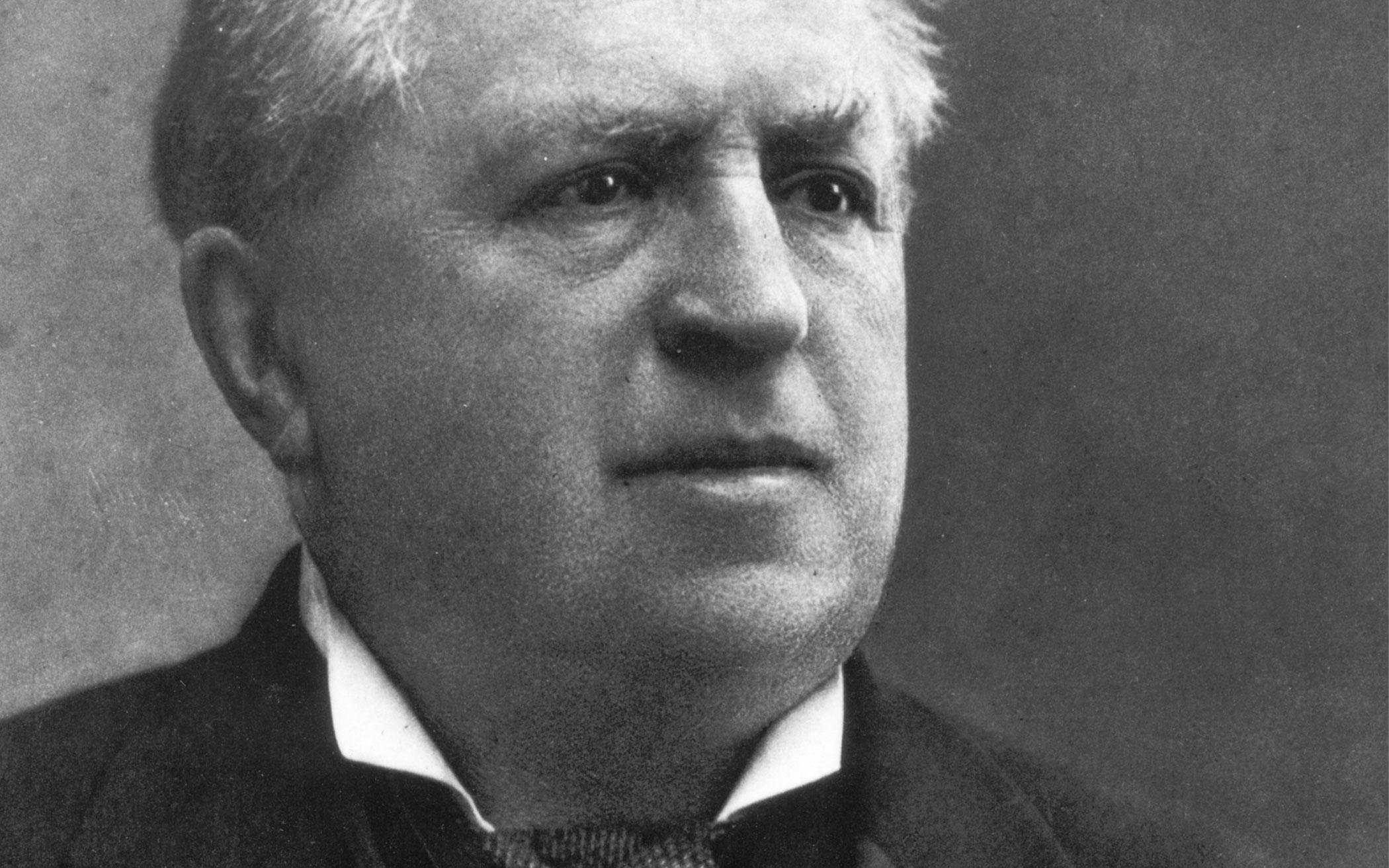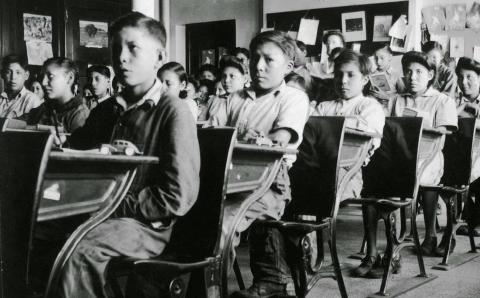When I was growing up, my parents took us to visit extended family in the southern United States. I was too young then to understand some of what I experienced. My relatives had a different flag in their front yard. Only later did I learn it was a Confederate flag. Sometimes I wasn’t allowed to swim in the community pool. Only later did I hear my relatives explain that the Black neighbors made the water “dirty.”
Of all our extended family members, these relatives were my favorite. They burned their trash in the backyard, and I was a child fascinated by fire. They had a pinball machine under their front porch! But as I grew up, my love for them became conflicted as I realized that they were deeply (even violently) racist. For many years, this was a confusing and disorienting problem for me: how to love family who were deeply broken themselves and abusive toward others.
Then I met Abraham Kuyper, another complex person. I devoured Kuyper’s many writings and his world of thought. I loved his passion for teaching the embodiment of Christian faith in a culture that was rapidly becoming secular, and I loved the courageous way he faced seemingly insurmountable challenges with energy and principle. The world-engaging form of Christian life he articulated and practiced resonated deeply with my own commitment to Christian engagement in public life.
But I’ve felt an uneasy feeling with Kuyper similar to what I felt with my extended family. Why was Kuyper connected with South African apartheid? Why is Kuyper dragged into today’s American political wars? How do we appreciate and retain Kuyper’s insights while also being clear about where he got things wrong? How do we celebrate Kuyper today—or is he someone we must cancel?
Who Was Kuyper?
Kuyper appears in the history of the CRCNA, but many today might have only a vague awareness of his idea that “every square inch” of life belongs to Christ. Kuyper was one of the great Dutch cultural critics, church reformers, and institution builders at the dawn of the 20th century. Especially for post-World War II Dutch immigrants to Canada, he is a key inspiration for how Christian faith takes robust shape. Even after his death more than a century ago, his vision of Christians bearing witness to their faith in all of life inspires a growing global community.
Kuyper is an essential teacher for a world-engaging Christian discipleship and witness that arises from neither a conservative nor a liberal agenda. Kuyper’s ideas even predate theological and philosophical developments far after his lifetime, such as attention to power dynamics within society—an important issue today.
Yet his complexity persists because Kuyper was unhelpfully ambiguous on issues of race. His thought is uncomfortably open to a variety of interpretations, some deeply problematic. It is this element of Kuyper’s legacy, as well as how Kuyper’s ideas have been (mis)used, that warrants more reflection. How do we learn from Kuyper while simultaneously maintaining a critical posture toward the ongoing development and refinement of the Kuyperian tradition? To put it concisely: How do we love and learn from Kuyper when he, like all of us, is a deeply complex, fallible individual?
Kuyper’s Context
To understand historical figures, we must understand their historical contexts. We are deeply shaped by our time and place. The dominant ideas and assumptions that surround us shape how we respond to the questions of our day. Because Kuyper died a century ago, his historical context is unfamiliar to many. Two main elements are worth highlighting.
Kuyper was born not long after the European Enlightenment era, an age marked by the emergence of a new, scientific way of knowing the world. New ideas and discoveries rooted in new technologies opened up a whole new perspective on the world around and within. Authority shifted from divine revelation or the proclamations of the institutional church to what could be proven by the scientific method.
It was called the “Enlightenment” because this new way of knowing was viewed as a new dawn after humanity had fumbled in intellectual darkness and ignorance for millennia. As a consequence of this new perspective, European civilization assumed itself to be superior to those “primitive” peoples and cultures still living in the darkness of religious superstition.
As Europeans were exploring and “discovering” other parts of the world, their experiences reinforced their sense of superiority as well as their sense of responsibility to bring “civilization” to the “savages” they encountered. Many European countries, including the Netherlands, saw it as their political and religious duty to expand their “superior,” “civilized,” and scientific way of life into the “new worlds” across the oceans via colonization.
In this way, the Enlightenment built upon what we call today the “doctrine of discovery”: the worldview rooted in legal and church proclamations from the 15th to 18th centuries that deemed non-Europeans inferior and unable to hold legal rights, land titles, or political sovereignty. And so, in the U.S. and Canada, North America’s Indigenous peoples lost their place, and the “empty land” (Latin: terra nullius) was simply claimed for European crowns.
A result of this attitude of superiority is a desire to forcefully control and rearrange the world socially and politically. For Kuyper, the prime example of the Enlightenment’s proud grasp of political power was the French Revolution (1789-99). Traditional forms of society, rooted in aristocracy and religious hierarchy, were violently overthrown (just think of the guillotine).
Kuyper viewed this revolutionary spirit as fundamentally opposed to orderly Christian faith and life. Instead, wrongs needed reformation (organic self-correction) over time rather than revolution overnight. And since the French Revolution was stridently atheistic, Kuyper sought to safeguard a place for Christian belief by advocating for pluralism within society (sometimes called pillarization) with a legal right for all confessional beliefs in the public square.
Diversity, therefore, grew out of Kuyper’s theology of creation and culture. Kuyper believed that God, being the creator, had woven potentials into the creation—potentials that human activity would discover and unfold over time. Kuyper called these the “spheres” of human culture and asserted that God had normed the proper functioning of each one. Kuyper believed that diversity is integral to God’s creative purpose.
But this diversity, he thought, functioned best within clear distinctions. This is where Kuyper’s uneasy legacy on issues of race and culture emerges.
Kuyper’s Legacy
The exact relationship between Kuyper or his theology and South African apartheid is a much-debated topic. But the proximity of Kuyper to apartheid (in the state and/or the Dutch Reformed Church of South Africa) is one of the most disconcerting elements of his legacy.
The South African Black Reformed theologian H. Rossel Botman has shown that Kuyper has both an “oppressive” and a “liberative” legacy. Kuyper’s oppressive legacy can be seen in the racially segregated mission policies of the Dutch Reformed Church of South Africa. It appears that apartheid took inspiration from Kuyper’s cultural distinctions but extended them to rigid separations between peoples, assuming that different peoples should live (and develop in time) separately from each other without comingling.
As European colonization continued in the centuries leading up to Kuyper’s lifetime, this general value of cultural separation morphed into an adversarial attitude toward non-Europeans. One scholar describes this as a European attitude of “over-against-ness” toward foreigners. American theologian Martin Marty has noted that the value of “separateness” and the attitude of “over-against-ness” emerge whenever churches attempt to navigate the uncomfortable complexities of diversity.
Therefore, when Kuyper’s ideas arrived in the tense racial landscape of South Africa, this European value of separation and attitude of “over-against-ness” combined to create an assumption among white people that the best way to manage diversity would be to legislate barriers between themselves and indigenous South Africans. This is the basic shape Kuyper’s oppressive legacy has regarding South African apartheid.
This is also the pattern we see in how Europeans related to indigenous North Americans during colonization. Canada’s residential schools and the relocation to reservations were an attempt to exert this European attitude of enforced separateness.
Kuyper’s liberative legacy, on the other hand, receives far less attention. While some used Kuyper to construct apartheid, it was also Kuyper’s theology that empowered Black Reformed South Africans (and some Dutch South Africans, who often paid dearly for supporting their Black brothers and sisters) in their fight to dismantle apartheid. In fact, it was Kuyper’s worldview rooted in Christ (rather than culture or political ideology) that produced the Belhar Confession, the first Reformed confession that emerged from outside Europe. Because of Kuyper, Black Reformed Christians asserted that only God is sovereign and that God sides with the poor and marginalized for justice and against colonial domination.
Kuyper’s “Address to the Members of the Anti-Slavery and Aborigines Protection Societies” in London is a good example of his alternative to white/European superiority. As the trans-Atlantic slave trade was winding down, Kuyper argued that Christians must respect the dignity of non-Europeans. Given the culture of the day, Kuyper’s attitude is hopeful.
Black South African theologians recognize that most of Kuyper’s public career was spent safeguarding social justice (not only white justice) in the midst of political, economic, and religious revolution. Black South Africans perceived this liberative legacy because they occupied a very different social location. They read Kuyper and celebrated his values of justice, diversity, and equality.
I am certainly not the first to wonder why, when Black South Africans expressed their faith in the form of the Belhar Confession, many white Reformed Christians paid little attention to Kuyper’s liberating legacy. Part of the answer lies in how his oppressive legacy continues to receive more attention and emphasis than his liberating legacy still today.
Kuyper Today
In North America today, we face massive social challenges: diversity, justice, and reconciliation, to name just a few. These are all attempts at decolonization, or what the Christian Canadian scholar Grace Ji-Sun Kim calls the process of liberating diverse peoples from the destructive European attitude of superiority that has become enshrined in law and culture. The church is learning how to live after Christendom (when the church had primary civic power). North American society is currently sifting through and reexamining its European heritage in light of the new value we place on equity, diversity, and inclusion. How does Kuyper fit into this process?
First, we must recognize that ideas can be used in liberating or oppressing ways. Much of how we receive Kuyper today is rooted in our worldview. Worldviews are the implicit value systems through which we interpret the world. One of the primary ways our worldviews are shaped today in North America is along a conservative/liberal divide. But this is not the same as Kuyper’s liberating legacy versus his oppressive legacy. We need to be clear that how we read and apply Kuyper today depends on the worldview through which we receive him.
Second, there are many ways we could (unfortunately, to my way of thinking) sustain Kuyper’s oppressive legacy, such as highlighting the “separateness” or “over-against-ness” of Dutch/European ancestry versus others in our diverse society. It would take the shape of assuming that European theology or white culture are normative and that everything else needs an adjective tacked on to show its “lesser” status (“Black theology” or “Indigenous culture,” for example). Kuyper’s oppressive legacy is evident when power or leadership is assumed to be hierarchical or when differences are deemed to be dangers. It’s an oppressive move to draw bold lines between “us” and “them” and then assume that “we” are superior and “they” must be excluded.
Third, the opportunities presented by Kuyper’s liberating legacy today are numerous. That legacy gives prophetic voice and concrete paths for social justice, reconciliation, and hospitality in our broken and alienated world. Those of us who are white/European can listen to voices and experiences that are different from ours with genuine interest and a willingness to learn and change. We can prayerfully and receptively study the Belhar Confession to hear the cries of the poor and marginalized and commit ourselves to welcoming and serving our neighbors. In these ways, we could celebrate our beautifully diverse world with Kuyper guiding us.
We face two main challenges in living downstream from Kuyper today. The first challenge is the complex task of bringing our historical tradition forward into the present in a nuanced and discerning way. If we attempt to put Kuyper on a pedestal and uncritically or woodenly apply his ideas today without appreciating his historical and cultural context (as well as our own), we are guaranteed to run into more problems. Theology becomes a dominating force when divorced from its original context and unreflectively imposed on new and different contexts.
The second challenge is more straightforward: are we followers of the God we come to know in and through Jesus Christ, or of Abraham Kuyper? As I’ve journeyed with Kuyper, I’ve become more convinced that he can lead us to be the liberating hands and feet of Jesus in the world today—but only where Kuyper points us to follow Jesus, not himself or some ideology. We must abandon our visions of superiority over others and confess with Kuyper that it is only in Jesus Christ that the global human community can hear God’s transformative words of life.
Discussion Questions
- How do you feel about Abraham Kuyper and his legacy, especially his legacy and influence in the Christian Reformed Church?
- Have you heard/read about Kuyper’s racist ideas before? In what context? What was your reaction?
- The author identifies both a liberating legacy and an oppressive legacy from Kuyper. Which legacy, do you think, have you mostly encountered in the CRC?
- What do you wish to be your legacy? How do you hope people will remember you?
About the Author
Michael Wagenman is the Christian Reformed campus minister at Western University in London, Ont., where he invites undergraduate students to put their faith into loving service and mentors graduate students. His most recent book is The Power of the Church: The Sacramental Ecclesiology of Abraham Kuyper (Wipf &Stock, 2020).









